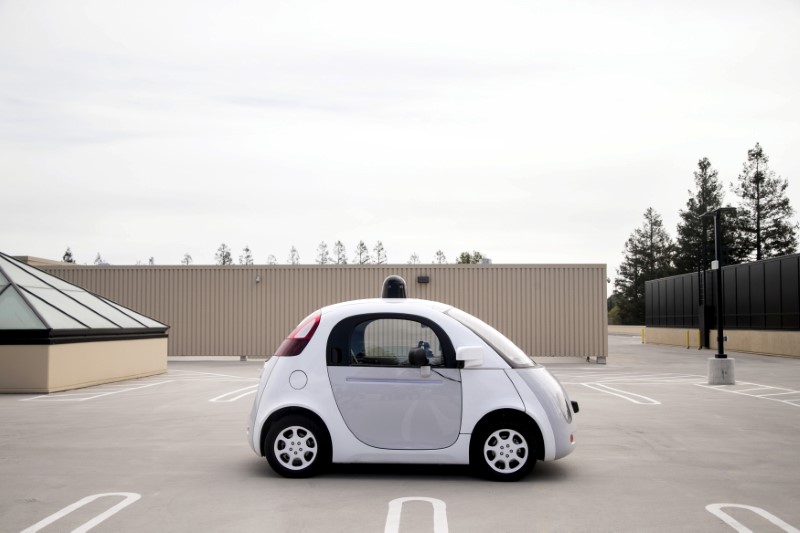By David Shepardson
WASHINGTON (Reuters) - Two U.S. senators said late on Wednesday that they had reached a bipartisan deal on legislation aimed at easing hurdles to getting self-driving cars to drivers.
U.S. Senator John Thune, a Republican who chairs the Commerce Committee, and Senator Gary Peters, a Michigan Democrat, said they had reached a deal on the legislation that would be voted on by the committee on Oct. 4.
They said they planned to release the text on Thursday.
General Motors Co (NYSE:GM), Alphabet (NASDAQ:GOOGL) Inc, Ford Motor (NYSE:F) Co and others have lobbied for the legislation to speed deployment of self-driving cars without human controls by allowing federal regulators to approve their use if they deem them safe and barring states from blocking autonomous vehicles. Current law prohibits vehicles without human controls. Two sources briefed on the matter said the bill would not include larger commercial trucks.
"We expect adoption of self-driving vehicle technologies will save lives, improve mobility for people with disabilities, and create new jobs," Thune and Peters said in a joint statement.
A similar bill that unanimously passed the U.S. House earlier this month also excluded vehicles above 10,000 pounds.
Senate aides have been negotiating for weeks over trucks and language in the bill that could preempt some state court lawsuits over the safety of self-driving vehicles.
The House measure, the first significant federal legislation aimed at speeding self-driving cars to market, would allow automakers get approval to sell up to 25,000 vehicles in the first year, rising to 100,000 by year three, as long as they could demonstrate the vehicles are at least as safe as current vehicles with human controls.
States could still set rules on registration, licensing, liability, insurance and safety inspections, but not performance standards.
Automakers would have to submit safety assessment reports to regulators, but the bill would not require pre-market approval of advanced vehicle technologies.
Automakers and some technology companies hope to begin deploying driverless vehicles around 2020. They have been pushing for new federal rules making it easier to deploy self-driving technology, but some consumer groups have sought additional safeguards.
States have issued a variety of rules in the absence of clear federal guidance, and automakers have complained that California’s rules are too restrictive.

Advocates hope self-driving cars will reduce U.S. road deaths, which rose 7.7 percent in 2015, the highest annual increase since 1966. A 2014 study found U.S. traffic crashes cost society $836 billion annually, with human error behind 94 percent of crashes.